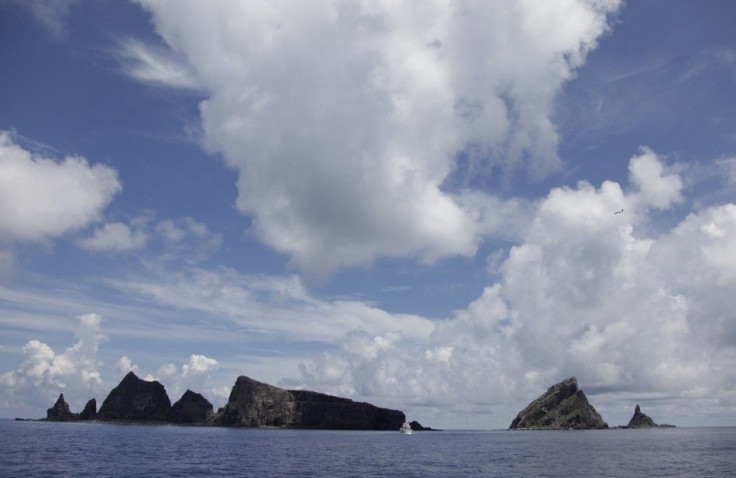China And Japan At War? Australian Academic Predicts It Could Happen Next Year

A huge war in East Asia between two ancient rivals?
An academic in Australia is predicting that another war between China and Japan over the "intrinsically worthless" and "trivial" disputed Senkaku/Diaoyu Islands is inevitable and could involve the United States.
Hugh White, a professor at Australian National University, and a former Australian defense official, believes that it will only be a matter of time until the two Asian giants head to war.
In an opinion piece published in the Sydney Morning Herald, White said that the current tug-of-war over the mutually claimed islands, known as Senkaku to the Japanese, and Diaoyu to the Chinese, will spark another war.
White also believes that Japan’s longtime ally, the United States, will also end up being dragged into the dispute.
"Don't be too surprised if the U.S. and Japan go to war with China next year over the uninhabited rocks. … And don't assume the war would be contained and short," White wrote.
The U.S. involvement in the war would begin as a result of America's recent pivot to Asia, which has sought to increase its military presence in various parts of Asia, posing a threat to China.
In return, China has pushed back against U.S. pressure. China's formidable military developments, including a new fighter jet and aircraft carrier, has both Japan and the U.S. anxious.
Earlier this week, Japanese and Chinese military made contact near the disputed islands. The Y-12, a Chinese maritime surveillance aircraft that was cruising around the disputed territories, was intercepted by several Japanese Air Self-Defense forces.
War would not be in the interest of anyone involved -- for Japan, a nation whose new leaders are still struggling to stabilize its economy, nor China, a nation weathering massive political and social changes -- but neither nation is showing signs of backing down.
White suggests that "creative diplomacy" may be the only way to wiggle out of a war between the world's top three economies, two of which are equipped with nuclear weapons.
For now, damages to diplomatic and economic relations will be the most likely outcome. Indeed, sales for Japanese automotive companies in China have dropped by roughly 50 percent since the dispute began. Violent protests in China and boycotting of Japanese goods will continue to strain bilateral ties between the two nations.
However, Japan's newly appointed politicians are still hoping the issue can be resolved. Japan's new ambassador to China, Masato Kitera, arrived in Beijing on Christmas Day, and was received by press who asked him about the ongoing tension between the two countries. In a quote published in the China Daily newspaper, Kitera expressed his interest in repairing the relationship that has been 40 years in the making.
"We cannot allow the efforts made over 40 years to end in failure. We must think about the problems overcome by some politicians to achieve a normalization of ties and realize that we do not have the authority to erase the efforts of our predecessors," he said.
© Copyright IBTimes 2024. All rights reserved.





















